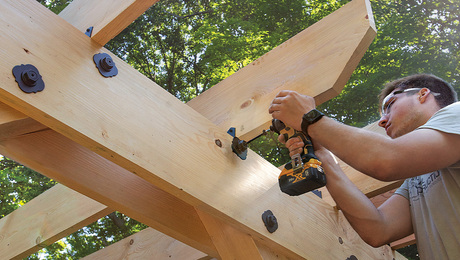Insulating walls with existing rock wool
My 85-yr-old mother lives in a house my father built in 1943 in western MA. He put loose rock wool insulation in the walls and attic, and later put additional fiberglass insulation in the attic. I think the attic is pretty well insulated, but am skeptical about the insulation in the walls. An oil furnace with hot water heat was installed a few years ago to replace a big, old wood furnace, and now my mother is always cold in the winter. She reports that even if she cranks the thermostat up, she cannot get the first floor warmer than 68-70 during the coldest days of the winter. The basement is unheated. I insulated the hot water pipes in the basement, which probably helped a bit, and I’m thinking about insulating between the joists in the basement, to keep the first floor a bit warmer. My questions:
- Is it worth exploring the option of blowing cellulose or some other type of insulation into the walls?
- How much is the rock wool likely to have settled over the past 60 years?
- If it’s worth pursuing, what type(s) of insulation should I consider?



















Replies
if the rock wool was not compacted when originally installed it may well have settled.
A cellulose installer can probably confirm the settling by removing some of the siding to inspect the top of some stud bays for you (if they are not accessible from the attic), as he will do to do an install (I'd expect to pay for that, as it takes longer than a simple bid).
Remember that much heat is lost by rising warm air escaping 'up' during heating season, so you may gain much by inspecting her house carefully for gaps, openings, escape passages for rising warm air (attic access panel, open stud bays in the attic space or into shed roof areas) and sealing these up with tightly compacted insulation 'plugs' or caulking.
The heat loss thru walls will be less than the above stuff because the rising warm air won't "push" against the side walls nearly as much as it will against the ceiling. So improving wall insulation might not gain much if you still have a leaking attic stair door or open stud bays up there to let all her warm air out.
Hope this is helpful.
Norm,Thanks very much for the thoughtful reply. I'll take a careful look at the attic before doing anything else.
Steve